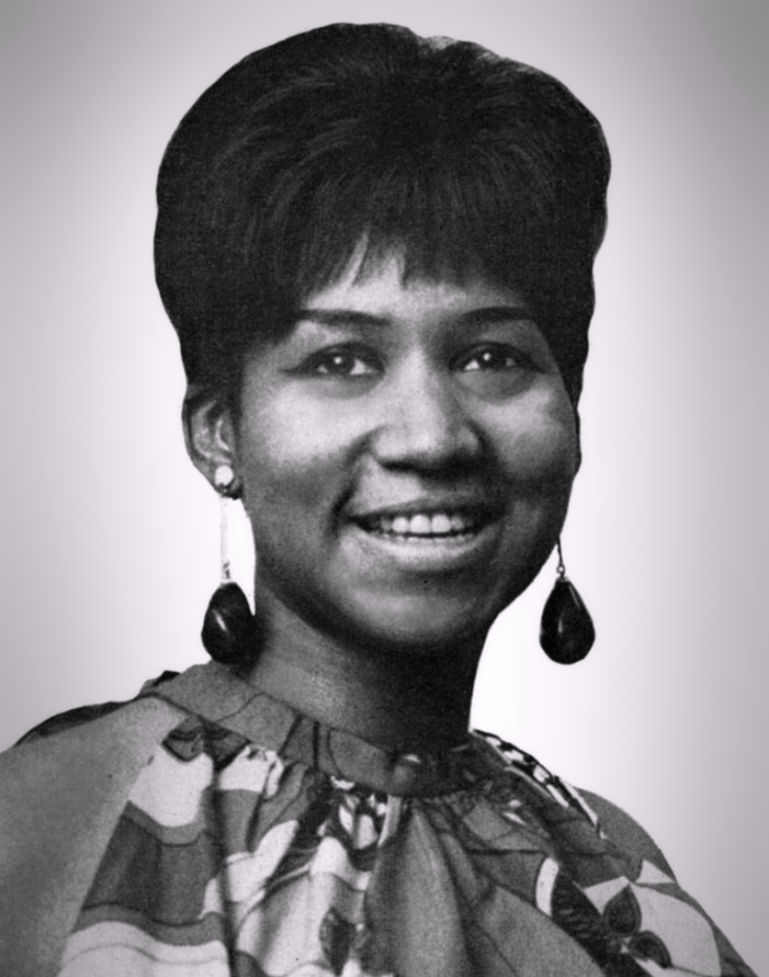
On August 16, 2018 Aretha Franklin passed away at 76 years of age, due to pancreatic cancer. Very few artists have had the indelible impact on music that the “Queen of Soul” Aretha Franklin had. Many of her tunes also expressed a keen understanding of the human condition, and her soaring vocals transformed many songs into anthems of empowerment. Here is a sample of ten socially conscious tunes she performed.
Respect
This tune from her 1967 breakthrough album, I Never Loved a Man the Way I Love You, is a timeless anthem of female empowerment. It was originally written and recorded by Otis Redding in 1965, but Franklin claimed ownership of the tune. She also made a few key modifications, such as the “R-E-S-P-E-C-T /Find out what it means to me” which helped give the song its anthemic feel. Franklin just wasn’t politely asking for respect, but she was demanding it.
Do Right Woman, Do Right Man
Another empowering tune from Never Loved a Man the Way I Love You. The song is an impassioned plea for equality, which is highlighted in the lyric “A woman’s only human / You should understand / She’s not just a plaything/ She’s flesh and blood just like her man.”
A Change Is Gonna Come
Originally written and recorded by Sam Cooke in 1964, the song was already a timeless civil rights anthem. Franklin’s galvanizing rendition is another gem from Never Loved a Man the Way I Love You. She takes the song to church, appropriately going back to her gospel roots.
Chain of Fools
This 1967 hit, which appeared on her 1968 album Lady Soul, was more personal than political (but it did touch on issues of women’s liberation). Later on, it was adopted by Black veterans returning from Vietnam, disillusioned with the military chain of command. Written by Don Covay, Don’s son Tony mentioned the original intent: “My father wrote this song about the cycle of property and slavery,” he told Songfacts. “The bicycle chain gave him the hook. He said he had to change the words to fit the public.”
People Get Ready
This Curtis Mayfield-penned tune was originally recorded by The Impressions in 1965. The gospel tinged song immediately became synonymous with the civil rights movement. Franklin’s version appeared on her 1968 album, Lady Soul. Just like she did with “A Change Is Gonna Come”, she taps into her gospel roots and takes it to church.
Think
“Think” originally appears on Franklin’s 1968 Aretha Now. She also gives a powerful performance of the tune in the 1980 film The Blues Brothers. Franklin co-wrote this stirring feminist anthem, where she admonishes anyone who tries to oppress her to “think about what you’re trying to do to me.” The soaring refrain of “freedom” fosters a feeling of empowerment.
Border Song (Holy Moses)
This Elton John and Bernie Taupin composition was originally recorded by John for his 1970 self-titled album. Franklin released her version as a single in 1970, and it appeared on her 1972 album, Young, Gifted and Black. It is another tune that Franklin is powerfully able to take to church. Potent lyrics in the song include “Holy Moses, let us live in peace/ let us strive to find a way to make all hatred cease/ there’s a man over there. What’s his colour I don’t care/ he’s my brother let us live in peace.”
Young Gifted and Black
Franklin’s poignant reworking of Nina Simone’s 1969 civil rights classic is the title track of her 1972 album. Another song she takes to church, and the results are goose-bump inducing.
Sisters Are Doin’ It For Themselves With Eurythmics
This song appears both on the Eurythmics 1985 album Be Yourself Tonight and Franklin’s Who’s Zoomin’ Who? Both Annie Lennox and Franklin are in fine form in this joyous anthem of female empowerment.
Everyday People
Franklin’s reworking of Sly and the Family Stone’s classic equality anthem “Everyday People” appears on her 1991 album What You See Is What You Sweat. Just like the original, the song is a joyous rally against bigotry.
I’m Every Women/Respect
This mash-up of Chaka Khan’s “I’m Every Women” with “Respect” is from Franklin’s 2014 album Aretha Franklin Sings the Great Diva Classics. The blending of these two tunes makes for a powerful declaration of female empowerment.